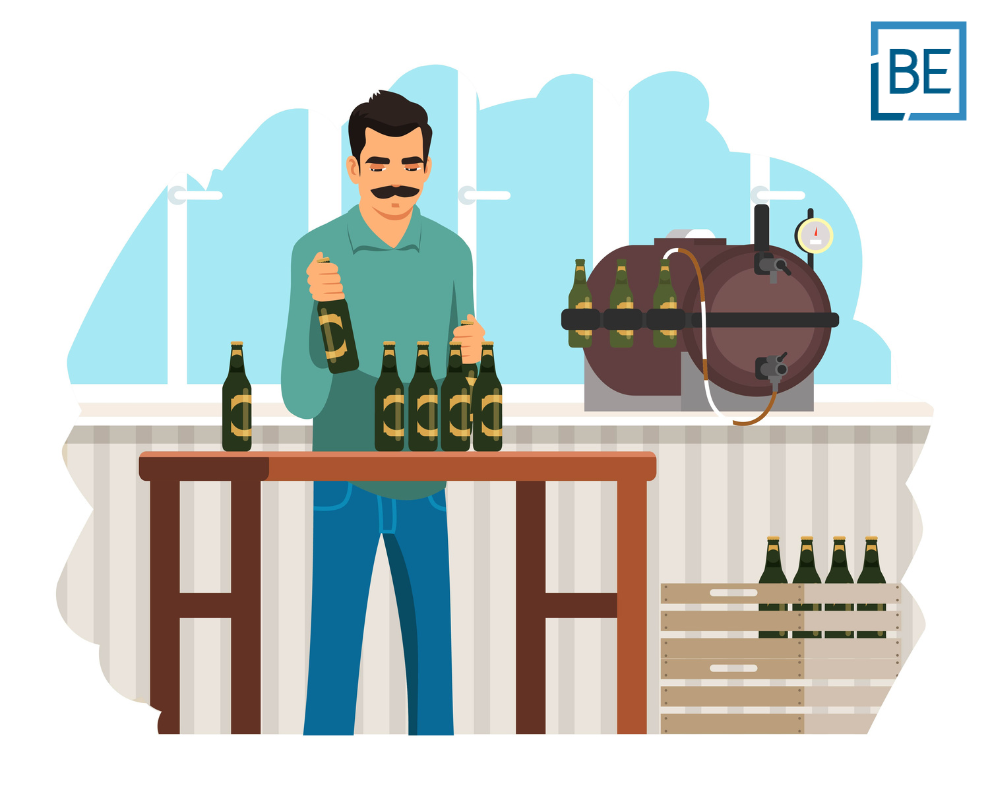Belaws Home ›› Thailand ›› Blog ›› How to Start a Brewery in Thailand
incorporation
How to Start a Brewery in Thailand
17/01/2024
Starting a brewery in Thailand can be lucrative, given the country’s growing beer market and the recently announced tax cuts on alcohol excise duties.
This blog post will outline the process for how to start a brewery in Thailand, including the necessary licence and permit requirements, legal considerations, and compliance with regulations.
Key points
- Breweries must obtain a brewing license from the Excise Department to legally produce beer in Thailand.
- An excise tax license is required to pay the required taxes on beer production and sales.
- A food and beverage license from the local health department is required.
- Breweries must submit beer labels to the Excise Department for approval, meeting specific requirements.
- Breweries also need to ensure compliance with regulations related to wastewater management, waste disposal, environmental impact assessments, and health and safety standards.
What is the process for opening a brewery in Thailand?
To successfully open a brewery in Thailand, you must satisfy the following steps.
Registering your new business
The first step in starting a brewery in Thailand is to register your business entity with the Department of Business Development. A private limited company is the most common brewery business type. Registering your business entity ensures you operate legally and have the necessary legal protections.
The requirement for opening a Thai Limited Company are as follows:
- 2 shareholders
- One or more directors
- 50,000 THB minimum capital (2M THB if you want to hire a foreign employee)
- A registered corporate address in Thailand
Generally, brewery businesses (production of beer) can only be undertaken by a Thai company (a company registered in Thailand with Thai shareholder(s) owning more than 50% of the share capital). It is not possible for a company with foreign shareholders to obtain a alcohol licence to produce distilled spirits, this can only be obtained by 100% Thai companies.
The Thai government has imposed these ownership restrictions to safeguard local businesses against foreign entities with greater resources and access to modern technology dominating the market. Additionally, such activities like brewing beer, and selling food and beverages, are already subject to constraints imposed by Thailand’s Foreign Business Act (FBA) and not eligible for 100% foreign ownership. Therefore, a Thai partner will be required.
Apply for the Relevant Business Licences?
Investors looking to start a brewery in Thailand are required to obtain the following business licences:
Brewing License
Businesses that plan to undertake the following activities must apply for a brewing license with the Excise Department (Ministry of Finance):
- Alcohol production and possession of related equipment.
- Import more than one liter of alcohol.
- Transport of untaxed alcohol from a factory.
- Transport of more than ten (10) liters of alcohol.
- Transport more than one liter but less than ten (10) liters of alcohol between specified territories (provinces).
- Sell alcoholic beverages.
To legally produce beer in Thailand, you must obtain a/brewing license from the Excise Department. You must obtain a license from the Excise Department to produce beer or fermented beverages. You can apply for a microbrewery license if you plan to produce less than 100,000 liters of beer per year or a brewery license if you plan to produce more.
Excise Tax License
In addition to the alcohol license, you must obtain an excise tax license from the Excise Department. This license is necessary to pay excise taxes on beer production and sales. The tax rates may vary depending on the type and alcohol content of the beer. Understanding and complying with tax regulations is crucial to avoid legal issues.
Food and Beverage License
To ensure compliance with health and safety regulations, including sanitation and food handling practices, you must apply for a food and beverage license from the local health department or municipality. This license guarantees that your brewery meets the necessary standards and regulations for producing and selling food and beverages.
The process for obtaining a food license involves several clear and structured steps as outlined below:
Step 1: Submission of Required Documents
The first step in the food license application process is to provide the necessary documents to the appropriate local office. These documents include:
- Company affidavit, dated within the last six months.
- Building registration document.
- Original consent letter or a copy of the lease agreement (affixed with a stamp duty).
- Copies of the ID card and home registration of the company director.
- Copies of the ID card and home registration of the business owner.
- Power of Attorney, if applicable.
- Completed and signed SorAor1 application form.
- Location map indicating the Brewerys address.
- Printed photos of the Brewery’s exterior and interior.
- Interior floor plan, detailing the layout of the Brewery.
- Total area of the Brewery in square meters.
- Proof of ownership on a case-by-case basis, such as sale and purchase agreement, title deed (all pages), or construction permit.
Step 2: Official Inspection
After the application has been submitted, an official inspection must be arranged. During this inspection, additional documents may be requested. The employees need to be present during the inspection to explain certain food-making processes.
Step 3: Thai Employees’ Certification
All Thai employees involved in the food preparation process must pass an exam at the district office to obtain a certificate.
Step 4: Food License Issuance
Once all the necessary requirements have been met, and the inspection is successful, the officer will issue the food license.
Food License Renewal:
It is essential to note that the food license must be renewed annually, and its validity extends until December 31st each year.
By following these structured steps and ensuring that all required documents are in order, businesses can smoothly obtain and renew their food licenses, enabling them to operate their business legally and compliantly.
Do I need to receive Label Approval?
Before selling your beer, you must submit your beer labels to the Excise Department for approval. The labels must meet specific requirements, including accurate alcohol content, ingredients, and warning labels. It is essential to have your labels approved to comply with labelling regulations and ensure transparency and consumer safety.
Alcoholic beverage labels must include the importer/distributor name, address, and alcohol content percentage. Additionally, a health warning in Thai must be prominently displayed on the label or affixed as a sticker, following government-approved wording. Complying with regulatory requirements for cosmetic labelling is also essential.
Do You Need to Consider Trademark Registration?
To protect your brewery’s name, logos, and brand trademarks, consider registering them with the Department of Intellectual Property in Thailand. Trademark registration safeguards your intellectual property rights and prevents others from using your brand identity without permission. It is a crucial step in establishing and maintaining your brewery’s unique identity in the market.
Are there any Environmental Regulations to Consider?
Operating a brewery in Thailand requires adherence to various regulations related to wastewater management, waste disposal, and environmental impact assessments. It is important to comply with these regulations to minimise the environmental impact of your brewery and contribute to sustainable practices.
Furthermore, compliance with health and safety regulations is crucial to maintain a safe working environment for your employees and ensure the quality of your products. This includes following sanitation standards, maintaining proper storage facilities, and implementing safety protocols.
How can Belaws help?
For more information about starting a brewery in Thailand, why not talk to one of our experts now?
Please note that this article is for information purposes only and does not constitute legal advice.
Our consultations last for a period of up to 1 hour and are conducted by expert Lawyers who are fluent in English, French and Thai.
Consultations can be hosted via WhatsApp or Video Conferencing software for your convenience. A consultation with one of our legal experts is undoubtedly the best way to get all the information you need and answer any questions you may have about your new business or project.
USD 150
Up to 1 hour
Online payment (Paypal or Credit card)
Legal consultation can be conducted in English, French or Thai
Legal consultations are handled by experienced lawyers from the relevant fields of practice
Frequently asked questions
What are the key considerations for starting a brewery in Thailand?
Key considerations include obtaining a brewing license, complying with tax regulations, acquiring a food and beverage license, and ensuring compliance with various regulations related to labels, wastewater management, waste disposal, and health and safety standards.
What licenses are required to legally produce beer in Thailand?
Breweries in Thailand must obtain a brewing license from the Excise Department. Additionally, an excise tax license is required to pay taxes on beer production and sales, and a food and beverage license is necessary for compliance with health and safety regulations.
What are the ownership restrictions for breweries in Thailand?
Brewery businesses, especially the production of beer, can only be undertaken by Thai companies with Thai shareholders owning more than 50% of the share capital. Foreign companies with foreign shareholders are not eligible for alcohol licenses to produce distilled spirits.
How do I register my brewery business in Thailand?
The first step is to register your business entity with the Department of Business Development, typically as a private limited company. Requirements include having 2 shareholders, one or more directors, a minimum capital, and a registered corporate address in Thailand.
What is the process for obtaining a brewing license in Thailand?
To legally produce beer in Thailand, breweries must apply for a brewing license from the Excise Department. They can choose between a microbrewery license (producing less than 100,000 liters per year) or a brewery license for larger production.
Do I need an excise tax license for my brewery in Thailand?
Yes, an excise tax license from the Excise Department is necessary to pay excise taxes on beer production and sales. Understanding and complying with tax regulations is crucial to avoid legal issues.
What is the process for obtaining a food and beverage license in Thailand?
The process involves submitting required documents, an official inspection, certification for Thai employees involved in food preparation, and the issuance of the food license. The license must be renewed annually.
Do I need label approval before selling my beer in Thailand?
Yes, breweries must submit beer labels to the Excise Department for approval. Labels must meet specific requirements, including accurate alcohol content, ingredients, and warning labels, to comply with labeling regulations.
Should I consider trademark registration for my brewery in Thailand?
Yes, to protect your brewery’s name, logos, and brand trademarks, it is advisable to register them with the Department of Intellectual Property in Thailand. This helps safeguard intellectual property rights.
Are there environmental regulations for operating a brewery in Thailand?
Yes, breweries in Thailand need to adhere to regulations related to wastewater management, waste disposal, and environmental impact assessments. Compliance with health and safety regulations is also essential for maintaining a safe working environment.
Related articles
Subscribe today
Subscribe today
To our newsletter for all the latest legal news
in South East Asia, Belaws updates and
special promotions on our services.
To our newsletter today for all the latest legal news in South East Asia,
Belaws updates and special promotions on our services.







